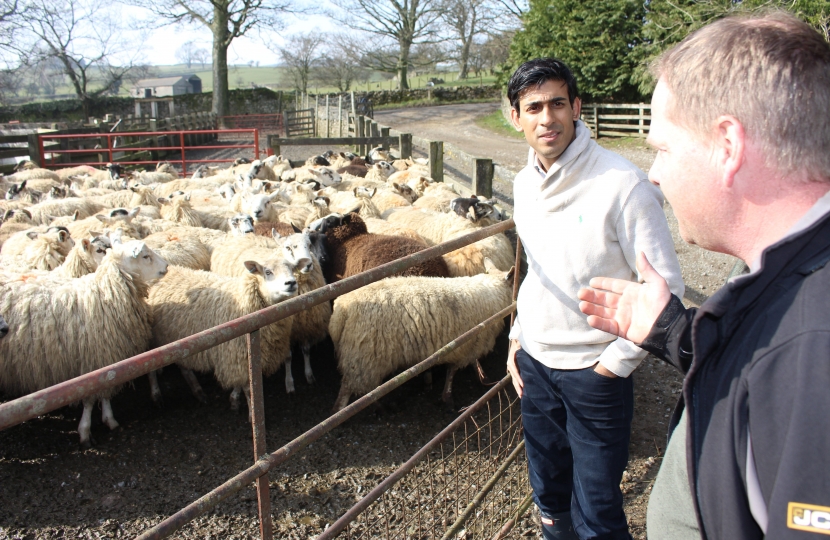
RICHMOND MP Rishi Sunak visited two Yorkshire Dales hill farms to gain a full understanding of the current difficulties faced by sheep farmers.
He talked to John Dixon and his two sons James and Stephen at Stainton Manor Farm, Downholme, near Richmond, and Tim Brown and his family at his Agglethorpe Hall Farm, in Coverdale, near Leyburn.
Mr Sunak said both farms were impressive operations but both the Dixons and Browns expressed grievances about a series of regulations which made operating their businesses more difficult and costly than they should be.
Mr Dixon had experienced particular problems with the tagging of his sheep. Because of a handful of faulty ear tags which had not scanned when the stock went to market at Hawes, he had been penalised by the loss of two per cent in his farm support payment for that year.
Both farmers expressed concern about the inflexibility of the six-day standstill regulation on livestock movements when new stock was brought on to the farm.
They also raised the issue of carcass splitting rules designed to prevent, control and eradicate transmissible spongiform encephalopathies (TSE) – such as bovine spongiform encephalopathy (BSE).
Currently lambs that go to slaughter have to be individually checked. If the lamb is either a year old or has a permananet incisor erupted through the gum, the carcass has to be split and the spinal column removed.
Rather than the “mouthing” system, sheep sector leaders want to use the May 31 date each year as the cut-off point, with lambs slaughtered after that date split for their spinal cord to be removed.
The rules were brought in from 2000, following the mounting BSE in cattle concerns of the 1980s and 1990s.
Mr Sunak said the system cost the industry £23m a year because the checking lengthened the time slaughter process took – by up to 50 per cent. The additional costs of checking led to a devaluation of the average carcass by as much as 40 per cent.
He said: “Despite their being no evidence of BSE crossing species from cattle to sheep in field conditions, nor evidence that scrapie poses any risk to human health, TSE regulations were brought in as a precautionary measure.
“While bio-security needs to be taken seriously, these regulations are ripe for simplification.”
Mr Sunak said there would export benefits in a rule change. The French market, which takes about 50 per cent of British sheepmeat exports, wanted more unsplit carcasses. Moving to a calendar system would make lamb production in the UK more predictable
Mr Sunak said he would be raising the issue of carcass splitting and the sheep identification system with the Farming Minister George Eustice.
He was accompanied on the farm visits by Phil Stocker, chief executive of the National Sheep Association, which called for the rule change on carcass splitting last year.
Mr Stocker said: “I was very pleased Rishi took the time to speak to farmers facing these difficulties on a day-to-day basis and get a really understanding about what is at stake.”
